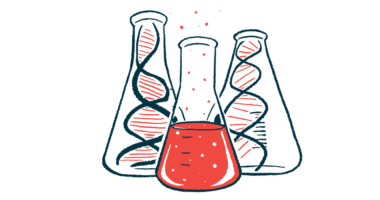Study Finds No Causal Link Between Alcohol Intake and SLE Risk

Alcohol intake does not affect the risk of developing systemic lupus erythematosus (SLE), according to a study. The results contradict previous reports about the protective effects of alcohol against SLE.
The study, “Alcohol intake and risk of systemic lupus erythematosus: a Mendelian randomization study,” was published in Lupus.
SLE is an autoimmune disease that causes excessive inflammation in different organs. The exact cause of the disease is unknown, but environmental factors likely play an essential role, especially in genetically susceptible individuals.
An environmental factor possibly associated with SLE is alcohol consumption. Previous studies have found that drinking alcohol had protective effects against SLE. However, it is possible that the studies were biased or that they indicated a relationship and not a causal effect.
To determine the causal effect of alcohol intake on SLE risk, the researchers used a genetic approach that measures variation in genes of known variance — commonly used to determine causality.
They evaluated the presence of single nucleotide polymorphisms (SNPs) — the most common type of genetic variations among people — associated with alcohol consumption in 336,965 individuals whose data was available in the UK Biobank.
After selecting 20 SNPs linked with alcohol intake, the researchers evaluated the presence of each SNP in 1,311 SLE patients and 1,783 control subjects. Then they studied the association of each SNP with alcohol consumption and SLE risk.
The causal association between alcohol intake and SLE — whether or not drinking more alcohol directly influenced the risk of developing SLE — was assessed by three different methods, but none of them found a causal link.
“Our data do not support a causal association between alcohol intake and SLE risk. Previously reported associations between alcohol intake and occurrence of SLE may be the result of bias or confounding factors,” the investigators stated.
However, they added that “an inverse relationship between alcohol intake and SLE risk is biologically plausible.” Beverages such as beer or wine contain antioxidants that could modulate the immune response, and “suppress synthesis of proinflammatory cytokines.”
Further research is necessary to fully understand this association, especially studies that include different populations since this study only considered people of European descent.






